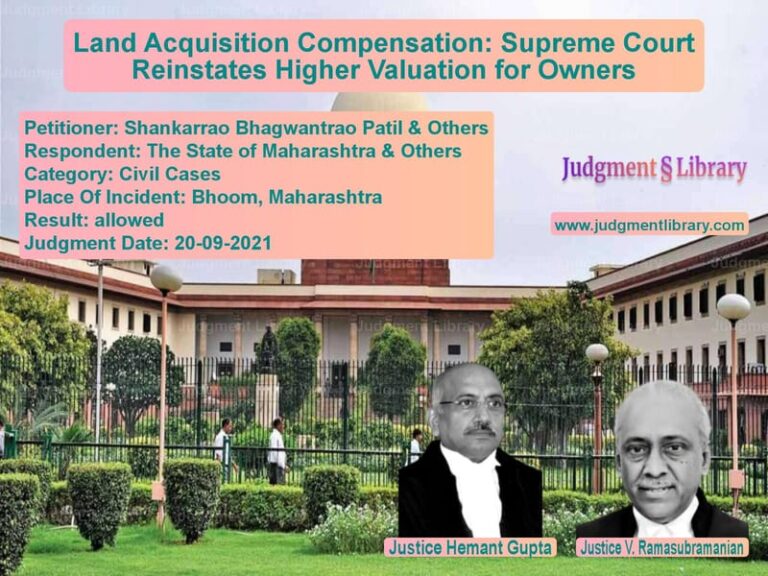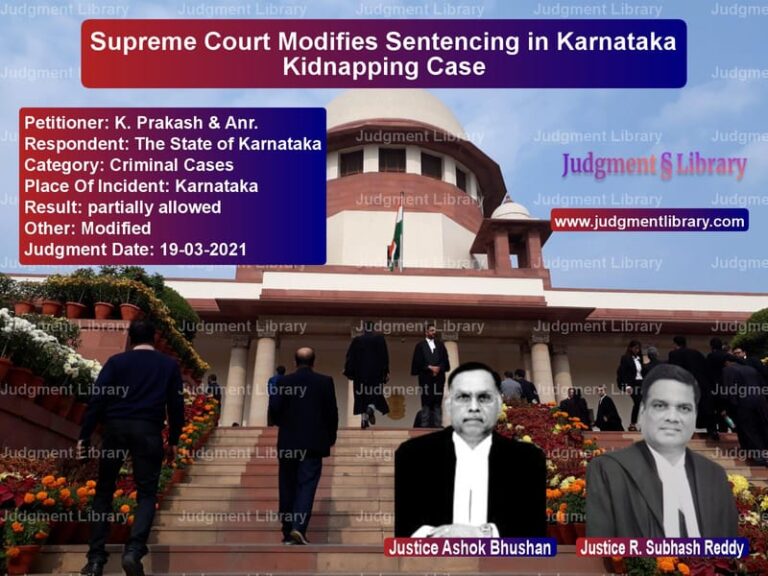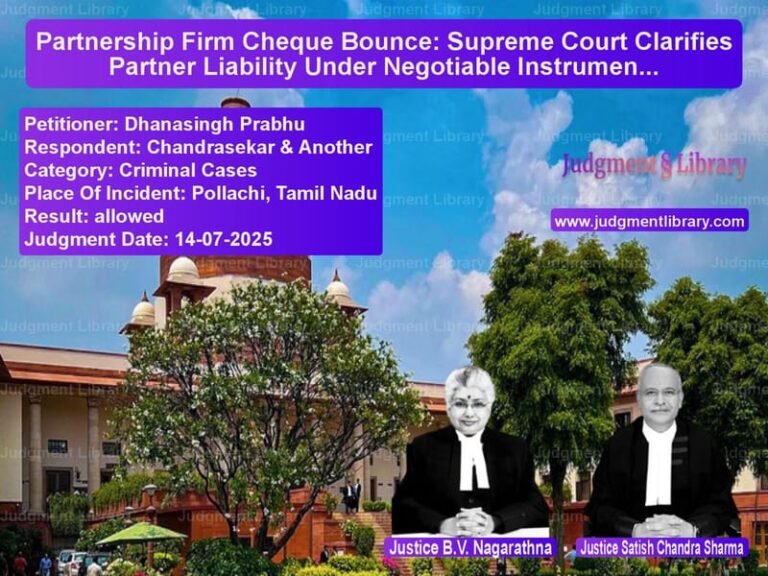Supreme Court Rules on Stamp Duty for BOT Projects: Partial Relief for Concessionaires
The Supreme Court of India has issued a significant judgment in M/S Rewa Tollway P. Ltd. v. The State of Madhya Pradesh & Ors., addressing the imposition of stamp duty on Build, Operate, and Transfer (BOT) projects. The case revolved around whether the right to collect tolls in exchange for infrastructure development under a BOT scheme constitutes a ‘lease’ under the Transfer of Property Act, 1882 (TP Act) and the Indian Stamp Act, 1899 (IS Act). The Court ruled that while the agreements in question do qualify as leases, the calculation of stamp duty should only be on the amount spent by the concessionaire.
Background of the Case
The case originated from a dispute where the Madhya Pradesh government imposed a 2% stamp duty on the entire cost of BOT road projects, treating concession agreements as lease agreements. The appellants, various infrastructure companies, argued that their agreements should be considered licenses rather than leases, making them exempt from stamp duty.
The Madhya Pradesh High Court upheld the state’s position, leading the appellants to approach the Supreme Court.
Key Legal Issues Before the Supreme Court
- Whether concession agreements under the BOT model constitute leases under the TP Act and IS Act.
- Whether the imposition of a 2% stamp duty on the entire project cost was justified.
- Whether the principle of legitimate expectation applied, given that the government had earlier assured that such agreements would be executed on Rs.100 stamp paper.
- Whether the amendment to the IS Act imposing the duty was ultra vires and arbitrary.
Petitioner’s Arguments
The appellants, led by M/S Rewa Tollway P. Ltd., argued:
- The BOT agreements did not involve the transfer of any property interest, which is essential for a lease under Section 105 of the TP Act.
- The agreements were structured as licenses where the government retained ownership of the roads, merely granting the right to collect tolls.
- The Chief Secretary of Madhya Pradesh had issued clarifications in 2002 stating that no stamp duty would be imposed on BOT agreements, creating a legitimate expectation among investors.
- The amendment to the IS Act was unconstitutional, as it contradicted earlier government commitments.
- The stamp duty should, at most, be calculated on the amount spent by the concessionaire and not the entire project cost.
Respondent’s Arguments
The State of Madhya Pradesh countered with the following arguments:
- The BOT agreements transferred a right to collect tolls for a fixed period, which meets the definition of a lease under the TP Act.
- The agreements specified a fixed tenure and monetary consideration, key characteristics of a lease.
- The government’s earlier clarifications did not hold statutory force and could not override legislative amendments.
- The state had the authority to amend tax laws and impose stamp duty to raise revenue.
Supreme Court’s Observations
The Supreme Court examined the legal framework governing leases, licenses, and tax laws. The Court made the following key observations:
1. BOT Agreements as Leases
The Court held that the agreements satisfied the essential criteria of a lease under Section 105 of the TP Act. The concessionaires had a defined period of possession and the right to collect tolls, fulfilling the definition of a lease under the IS Act as well.
2. Limited Scope of Legitimate Expectation
The Court rejected the appellants’ argument that the government’s earlier clarifications created a binding commitment. It reiterated that legislative amendments supersede administrative clarifications.
3. Proportionality of Stamp Duty
While upholding the classification of BOT agreements as leases, the Court ruled that stamp duty should only be levied on the portion of the project cost actually incurred by the concessionaire. The full project cost, including government contributions, should not be subject to duty.
Final Judgment
The Supreme Court ruled:
- The Madhya Pradesh High Court’s decision was upheld in part.
- The BOT agreements were confirmed as leases and subject to stamp duty.
- The stamp duty should be calculated only on the amount spent by the concessionaire, not the entire project cost.
- The matter was remanded to the Collector (Stamps) to recalculate the duty accordingly.
- Any excess stamp duty already collected would be refunded to the concessionaires.
Implications of the Judgment
This ruling provides clarity on the taxation of BOT agreements, confirming that infrastructure projects under the lease model are subject to stamp duty while ensuring that companies are not unfairly taxed on government contributions. The judgment sets a precedent for similar disputes across India.
Petitioner Name: M/S Rewa Tollway P. Ltd..Respondent Name: The State of Madhya Pradesh & Ors..Judgment By: Justice Vikram Nath, Justice Ahsanuddin Amanullah.Place Of Incident: Madhya Pradesh.Judgment Date: 19-07-2024.
Don’t miss out on the full details! Download the complete judgment in PDF format below and gain valuable insights instantly!
Download Judgment: ms-rewa-tollway-p.-vs-the-state-of-madhya-supreme-court-of-india-judgment-dated-19-07-2024.pdf
Directly Download Judgment: Directly download this Judgment
See all petitions in Income Tax Disputes
See all petitions in Customs and Excise
See all petitions in Banking Regulations
See all petitions in Corporate Compliance
See all petitions in unfair trade practices
See all petitions in Judgment by Vikram Nath
See all petitions in Judgment by Ahsanuddin Amanullah
See all petitions in partially allowed
See all petitions in Remanded
See all petitions in supreme court of India judgments July 2024
See all petitions in 2024 judgments
See all posts in Taxation and Financial Cases Category
See all allowed petitions in Taxation and Financial Cases Category
See all Dismissed petitions in Taxation and Financial Cases Category
See all partially allowed petitions in Taxation and Financial Cases Category







